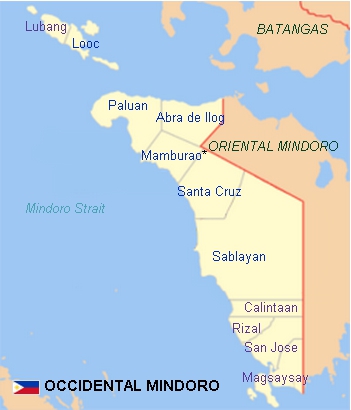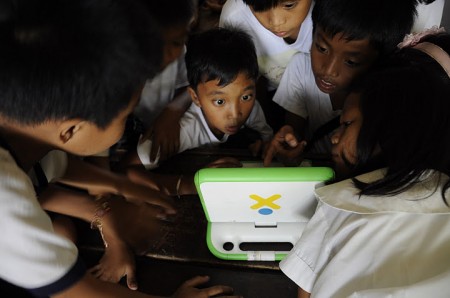The eKindling grassroots group gave a lovely update of their work in the Philippines, last month in San Francisco.  They have been working with the province of Occidental Mindoro for some years. This began with the Lubang pilot, spearheaded by Mayor Juan Sanchez and financed by his friends from National Computer Center Community Outreach, Metrobank, and  many other anonymous donors. eKindling’s counterpart contribution in this pilot was the education programming and training of teachers, students, parents, and local support team.
More recently, Governor Ramirez-Sato has begun an expanded initiative on Mindoro Island.  Elementary schools of the four southern municipalities,  San Jose, Calintaan, Magsaysay, and Rizal, will be receiving another 550 XOs later this year.  With Lubang in the north and these four in the south, can the rest of the province be far behind?

The Occidental Mindoro team conducted a baseline readiness survey in March, visiting some of the schools. Â This was the children’s first chance to use the laptops. Â Since then, there have been two training sessions with teachers from all involved schools, in June and October, and a training session with champion students from all schools in June.
They took  photos of their visit to the San Jose Pilot Elementary school.  Two of my favorites:


Photos by Ideals.ph
The new pilots are being advised (kindled!) by eKindling and managed by the local school system, an excellent example of government/grassroots collaboration.  Thanks to both groups for capturing this day in the life of the schools, and for making it possible.




